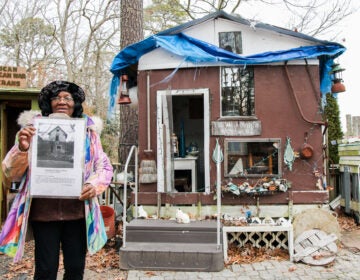Commentary: Is Pearson really stalking your children’s Twitter feed?

(Shutterstock)
Legislators, lobbyists, and Twitter feeds were aflame last week when news surfaced that Pearson, the company that produces PARCC assessments, had hired a company to monitor social media for security breaches and, specifically, had caught a high school student in Watchung Hills Regional High School who posted test information on his Twitter account.
Randi Weingarten, President of the American Federation of Teachers, tweeted, “OMG–Breaking: Pearson, spying on social media of NJ students taking PARCC tests.” Diane Ravitch mourned, “privacy is truly dead.” More locally, Bob Braun bleated that “spying on children is a betrayal of the public trust” while Mark Weber intoned that “a private, foreign corporation decided their property rights trump [a student’s] First Amendment rights.” Assemblyman Patrick Diegnan, always happy to jump on the anti-testing bandwagon, told The Record that “this type of event has a chilling effect on parents and kids.”
Let’s all take a deep breath, examine the facts, and plumb the motivations behind these fiery reactions to the news that a testing organization was trying to keep kids from cheating.
Certainly, that endeavor is nothing new. Once upon a time teachers roamed classrooms during tests checking for cheat-sheets, passed notes, and wandering gazes. (Famous Woody Allen line: “I was thrown out of college for cheating on the metaphysics exam; I looked into the soul of the boy sitting next to me.”) Now teachers roam classrooms checking for text-messaging, snapchats, Facebook posts, and tweets that might compromise the integrity of test-taking.
Similarly, standardized test companies have shifted the way they monitor security breaches. For example, reports the Washington Post, ETS, which creates and administers PSAT’s, SAT’s, GRE’s, and other exams, “has been scanning the Internet for 18 years,” searching for tweets and posts that reveal test questions and answers. Ray Nicosia, head of test security for ETS, said that “test security has evolved alongside technology,” and added that “he can remember cheating scams involving fax machines in the late 1990s.”
According to the contract that Pearson signed with New Jersey and the 12 other PARCC states, it must monitor social media for leaks. So Pearson hired a Salt Lake City company called Caveon to monitor the internet. It did, and during N.J.’s PARCC testing this month found the kid in Watchung Hills, along with two other students. So Pearson contacted the districts who, then, contacted the students’ parents.
Should the New Jersey Department of Education been more proactive in alerting parents and legislators that monitoring social media is now part of the world of standardized testing and, in fact, has been for some time, long before the advent of PARCC testing? Sure. Should legislators and parents be less naive about the public nature of the internet? Sure. But, really, it’s not that big a deal.
So why the hue and cry, why the allegations of privacy invasion and abrogation of the public trust? The answer has little to do with protecting students and much to do with protecting adults.
Three years ago the N.J. State Legislature passed a teacher tenure reform bill called TEACHNJ that ties a small percentage (10 percent this year) of teacher evaluations to student outcomes on standardized tests. This bill was passed with NJEA support, but since then union leaders have lobbied hard to undermine this initiative because they fear that data-driven evaluations will prove too punitive for teachers. Their primary weapon has been public anxiety over PARCC: the tests are too hard, the tests are too expensive, the tests cut into instructional time.
NJEA doesn’t bother to explain that PARCC tests are harder because the old ASK and HSPA tests were too easy (and 79 percent of teachers say they’re better); that the PARCC tests cost the same or less than the old tests although more kids take them; and that instructional time can be preserved by eliminating redundant in-district tests.
In fact, NJEA is so committed to attacking PARCC that it launched a one-week TV ad campaign against the tests that cost $15 million, paid for by teacher dues. The union also hosts a website called “NJ Teachers and Families” which offers a variety of attacks against PARCC, as well as instructions for opting children out of the tests.
Thus, the social media alerts in Watchung Hills and the subsequent Legislative hearing last week was a a terrific opportunity to incite the anti-testing crowd and lobby friendly legislators for bills that would emasculate TEACHNJ’s accountability provisions.Lynnell Mickelsen of Put Kids First says this about union rejection of standardized tests, particularly PARCC:
“Can we be clear? When the sole responsibility for test outcomes was on the children, there was little to no organized test resistance. But as soon as some of the responsibility shifted to the adults, oh my God! Let the weeping, wailing and gnashing of teeth begin. Oh, the inhumanity! Oh, the stress of “high-stakes”! Oh, the loss of childhood! Oh, the corporate conspiracy of Pearson! And so forth.”
This week’s fever over Pearson isn’t about a kid cheating on a test or even the evolution of assessment monitoring in the digital age. This is about union allies’ hostility towards New Jersey’s nascent efforts at a small measure of accountability.
________________________________________________
Laura Waters is vice president of the Lawrence Township School Board in Mercer County. She also writes about New Jersey’s public education on her blog NJ Left Behind. Follow her on Twitter @NJLeftbehind.
WHYY is your source for fact-based, in-depth journalism and information. As a nonprofit organization, we rely on financial support from readers like you. Please give today.





